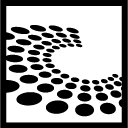28C3 - Version 2.3.5
28th Chaos Communication Congress
Behind Enemy Lines
| Referenten | |
|---|---|
|
|
Tom Hargreaves |
| Programm | |
|---|---|
| Tag | Day 3 - 2011-12-29 |
| Raum | Saal 2 |
| Beginn | 16:30 |
| Dauer | 00:30 |
| Info | |
| ID | 4759 |
| Veranstaltungstyp | Vortrag |
| Track | Hacking |
| Sprache der Veranstaltung | englisch |
| Feedback | |
|---|---|
|
Haben Sie diese Veranstaltung besucht? Feedback abgeben |
Open source music: Tracking 2.0

Tracking is so 1990s. Nowadays MP3 and other similar formats are overwhelmingly more popular. But is this really a step forward? A (very) brief history of computer music, where we are at now, and why I think people are headed in the wrong direction. And what we can do about it.
Distributing music as recordings is terribly limiting to hackers and tinkerers. Music as source code makes dissection, modification and reuse easier. I will introduce a prototype next-generation tracker for the web, with the ultimate aim of being a way to not just create but also distribute music, and to collaborate on music creation: Github for music, if you will.
As a music creation tool, trackers have been displaced in popularity because they are:
- Balky (arcane command+parameter syntax, steep learning curve, have slowly grown by accretion without regard to comprehensibility)
- Underpowered (many useful DSP effects are unavailable)
As a music distribution tool, tracked formats have been displaced in popularity because they are:
- Not ubiquitous (people may not have playback software)
- Underspecified (hence behaviour differs across implementations)
I believe all of these problems are soluble, and I'm going to talk about how. "modplayjs" (a working title which may well change by December) is a tracker written in javascript. While capable of playing existing module formats, it is primarily a playground for experimenting with shedding two decades of accumulated baggage, and is currently under heavy development.
